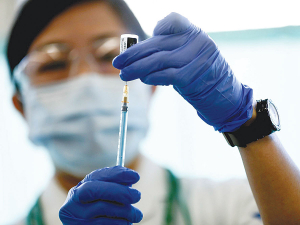M.I.A.
OPINION: The previous government spent too much during the Covid-19 pandemic, despite warnings from officials, according to a briefing released by the Treasury.
 Heartland New Zealand is the engine room of the economy, so why is it ignored in the push for vaccines.
Heartland New Zealand is the engine room of the economy, so why is it ignored in the push for vaccines.
OPINION: Heartland New Zealand is the engine room of our economy.
It's where our food is produced and processed and where hard working people live long distances away from even small towns and certainly big cities. It's a place where facilities such as broadband and fancy coffee bars are nothing like what they are in the main centres.
In this era of Covid-19, health facilities are not always easy to access and it can take in some cases a day just to see the doctor or dentists, driving on winding gravel roads - no Covid-shot buses in this part of the world.
At Prime Minister Jacinda Ardern's daily briefings we are constantly told about the need to get vaccinated and that there are places in the cities and suburbs that are waitin to give you the jab.
What is constantly missing from the Beehive is a mention of the essential workers out in the country and the need for them to get vaccinated.
When Covid arrived about 18 months ago, much was made about agriculture being an essential industry that would be the economic driver given that international tourism was on the wane.
No one disputes the need for city people to get vaccinated, but just a reminder to our mates in Wellington that unless there is a very high vaccination rate in rural NZ, the economy could come crashing down.
Dairy farms are desperately short of staff, so are the meat processing plants, orchards and commercial growing operations, and should Covid hit rural NZ badly, there is no backup.
Rural NZ seems to be left to its own devices to sort out the issue. Rural GPs are overworked and health resources overall are sparse.
A shout-out to the industry-good organisations, Maori iwi led groups and others who have stood up and got things in motion to get locals vaccinated. Maori are a vital part of the rural workforce and need to be encouraged and helped to get vaccinated.
The last thing they need is a small bunch of idiotic anti-vaxxers preaching pseudo-science and quackery on social media.
It's time perhaps for the boys and girls at the Beehive to give a shout-out to rural NZ, which supplies the milk for their lattes and the salads and hamburgers for their lunches.
When American retail giant Cosco came to audit Open Country Dairy’s new butter plant at the Waharoa site and give the green light to supply their American stores, they allowed themselves a week for the exercise.
Fonterra chair Peter McBride says the divestment of Mainland Group is their last significant asset sale and signals the end of structural changes.
Thirty years ago, as a young sharemilker, former Waikato farmer Snow Chubb realised he was bucking a trend when he started planting trees to provide shade for his cows, but he knew the animals would appreciate what he was doing.
Virtual fencing and herding systems supplier, Halter is welcoming a decision by the Victorian Government to allow farmers in the state to use the technology.
DairyNZ’s latest Econ Tracker update shows most farms will still finish the season in a positive position, although the gap has narrowed compared with early season expectations.
New Zealand’s national lamb crop for the 2025–26 season is estimated at 19.66 million head, a lift of one percent (or 188,000 more lambs) on last season, according to Beef + Lamb New Zealand’s (B+LNZ) latest Lamb Crop report.